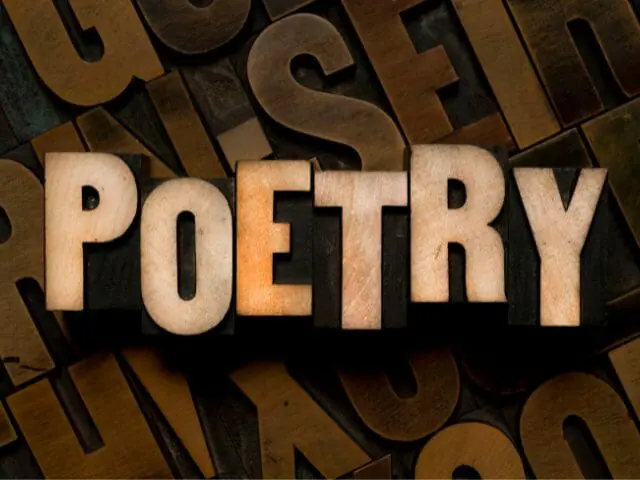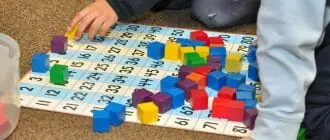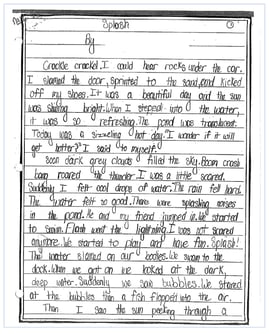
- Mar 24, 2021

Essays in 6th Grade: A Basic Format that Elevates the Standard 5-Paragraph Structure

6th grade is such a funny year. Funny haha and funny weird. Student writing levels are all over the map. You will have students coming to you writing on a very elementary level, still needing loads of help with grammar and paragraph formation. Then, you will have students ready to write critique pieces and analyses. How do you navigate this? Read to find out more!
Give Them a Format...to Start
I've learned that 6th graders still need format . They still need structure. They still need checklists. As much as I loathe limiting them in this way, I think it is very reassuring to them. That's not to say you can't tweak for the strong writers, but I do still feel they need it.
For my students in particular, I like to let them dabble in looser formats of non-fiction writing in other ways. They do book reviews , a debate , podcasting , etc. They are offered choices in reading responses to non-fiction reading and analysis, too. My classes actually write digital eBooks, too. But on the whole, they are expected to write two essays with a very similar format twice a year.
Bye-Bye 5-Paragraph Essay
Alright, so this is kind of not totally true. My students do end up writing 5 paragraphs, but that typical structure we all commonly know, I navigate away from. I think it's a fine format, but as they get into middle school they are expected to compare a LOT more and not focus on one specific topic . They are expected to follow through on a thread, a claim, a theme, an idea and how it is shown in various sources. And this is super new for them, analyzing various sources on the same concept. They really need a structure for this.
So, the typical essay, before they get to me, goes like this, and it is a good precursor:
Introduction that states your thesis and 3 major reasons to support your claim.
Conclusion that looks a whole lot like the introduction.
This format does not allow analysis of multiple sources and if you throw in other sources, it gets messy. Instead, I gear my students to focus on each source separately, then comparing them all.
The Format that Works (Research and Literary Analysis)
First of all, it's important to know what essays I actually do with my kiddos. I do a research unit. This changes almost every year, but typically they choose some kind of topic, I group them based on their topic choice. First, they do research (non-fiction skills) using a book, article, and video. They then use those sources to write an essay on a claim they make based on their topic. Later, they make eBooks in groups based on their topic.
The other essay I do is Literary Analysis . This follows a dystopian unit . They read a dystopian book in book clubs. Then, I have them choose from a short list of short stories that are dystopian. Lastly, we watch the movie The Truman Show . (This year I had them watch "The Scarecrow" on YouTube since we were hybrid due to the pandemic). They then determine a theme that is true for all three sources and write an essay based on that theme.
This essay format works for both of these essays. So here it goes!

Introductory and Conclusion Statements
In a traditional essay, students have to write a hook, their claim/thesis, and essentially ANOTHER three sentences that state what their essays will be about. In my opinion, all of this is completely unnecessary. How many times do you read introductions in books? Okay, real avid readers do, but in reality many people don't. So for these, I tell my students to get right to the point .
Here's what should be in their introductory and conclusion statements:
A statement that introduces the topic. (This is a hook of some kind. I sometimes tell them to start it with "in our world..." or "in our lives..." and something that relates to their topic. Or just starting it with their topic and explaining what it is.)
The claim/thesis.
A statement that references there are differences and similarities in the sources. (For example: "[Title of sources] support this claim in different and similar ways." That's it.)
This all ends up being 2-3 sentences.
Topic Sentences
I have my students start their essay prep with topic sentences. This helps them get a sense of where their essays will go.
The big thing to understand here is how the paragraphs are set up .
Body #1 : Focus on source #1 and how it shows claim/thesis.
Body #2 : Focus on source #2 and how it shows claim/thesis.
Body #3 : Focus on source #3 and how it shows claim/thesis.
Body #4 : Focus on how ALL SOURCES show the claim/thesis in the same way.
So they start with creating topic sentences for those paragraphs. Each topic sentence is set up like this. The last topic sentence would start with "all sources..." instead of "source title".:

Body Paragraph Format
In the picture you see below, I have specific colors for specific aspects of body paragraphs. ALL body paragraphs follow this format in that exact sequence/order. I will be completely honest, I don't give them a ton of wiggle room since this is pretty new to them. However, my stronger writers dabble in mixing evidence stems and elaboration stems around.

Their paragraph starts with the topic sentence they already prepared. From there, the next sentence begins with an evidence stem . Here are a few examples of evidence stems:
According to the text,
The author states,
In [title],
Right after the evidence stem, in the same sentence, they add their text detail to support their topic sentence. I encourage them to quote exactly from the text for most text details. They can paraphrase, too, but should really try to get exact lines.
In regards to quoting, I also mention to them not to quote plop . I made this up. I plan on making a product for this at some point. A quote plop is bad . It's when students take a line from the text and just plop it in their essay. I show them how to break up the quote from the text with their own words.
So, a first sentence may look like this: According to the text [evidence stem, highlighted green] , when Luke was hiding due to being a third child, "they took the woods away" , [text detail with context, a.k.a. not just plopping the quote in the sentence, highlighted yellow].
Directly after that sentence should be an elaboration stem with an elaboration explaining how the text detail shows their claim/thesis. Students highlight this entire sentence in blue and their claim within it dark blue. Here are some elaboration stems:
This proves [claim] because...
This shows [claim] because ...
After that they do the same process two more times; two more text details with elaborations. Lastly they do a closing sentence .

Comparison Paragraph: This is set up almost exactly the same, except the focus is on how ALL the sources show the claim in the same way. They then provide a NEW text detail from each source to prove how the claim is being shown similarly in each.

Once all their body paragraphs are written, I have them go review their introductory and conclusion statements, put everything into a final draft and leave the highlights in the essay . This helps them visualize all the components and helps me grade!
For revision, the focus is on not quote plopping, being sure their details support their thesis, changing up the wording of claims/theses, and rearranging for strong writers.
Bottom Line
While this is very limiting for some, it is super helpful for struggling writers. Having that checklist and having the highlights helps students visualize what they need to compare sources in an essay format.
I'd say it'd be great to introduce this in 6th and by 8th, they can certainly make these more interpretive, creative, and unique.
You can find a lot more detail about this in the product below . What you see here is only a taste. This contains a full sample essay, checklists, tips, and more. You can also edit it to meet your needs.

************
Want a custom bundle from me click below.

Teachers Pay Teachers Store
Recent Posts
Spring Things! Fun with Poetry and Figurative Language
Text Structure Explanatory Writing: Creating a Dodecahedron
Why I Don't Do a Daily Reading Log: What I Do Instead
Really interesting - thank you!!
This exactly the kind of thing I've been looking for, and even better! I love your approach and it's so well explained. I couldn't disagree more with any of the negative feedback to this article. I think it's perfect for my style of teaching and my standard of writing. Most of all, the way you explained this and broke it down into small steps will make it so achievable for even lagging students to develop great writing skills and feel confident in the process! You nailed it. Thank you so much!
I read all the essay writing format instructions. All the points are useful for any kind of essay writing. But at the age of high-level essay writing learners need to be essay writer experts like the 6 Dollars Essay Website , ready to do professional essay writing for any essay grade.
This is beyond me and I teach HS English. Where does this lady teach, at Princeton? I do not know any 6th grader that does this or would understand this. I see why so many of our young people have become disinterested in the learning process. I also see why so many teachers quit. The profession is stale, boring, and antiquated. This article was not fun to read and I'm thinking this new 5 paragraph writing style would be a drag for the average ela teacher to teach.
. In the blog post, I mention the various types of writing I do with students. I also have other blog posts that discuss these other formats. This is not the end all be all. In my over a decade experience with teaching writing, having a structure helps struggling writers. This is not a writing style. This a format for one type of writing. As teachers, we should be offering all types of formats, especially with younger writers who are still learning how to write.
Grade 6 Essays
Proposal argument for reading and writing reforms for grade 6, popular essay topics.
- American Dream
- Artificial Intelligence
- Black Lives Matter
- Bullying Essay
- Career Goals Essay
- Causes of the Civil War
- Child Abusing
- Civil Rights Movement
- Community Service
- Cultural Identity
- Cyber Bullying
- Death Penalty
- Depression Essay
- Domestic Violence
- Freedom of Speech
- Global Warming
- Gun Control
- Human Trafficking
- I Believe Essay
- Immigration
- Importance of Education
- Israel and Palestine Conflict
- Leadership Essay
- Legalizing Marijuanas
- Mental Health
- National Honor Society
- Police Brutality
- Pollution Essay
- Racism Essay
- Romeo and Juliet
- Same Sex Marriages
- Social Media
- The Great Gatsby
- The Yellow Wallpaper
- Time Management
- To Kill a Mockingbird
- Violent Video Games
- What Makes You Unique
- Why I Want to Be a Nurse
- Send us an e-mail
WorkSheets Buddy
Download Math, Science, English and Many More WorkSheets

Essay for Class 6 Children | Essay Topics for Grade 6 Students in English
Not Everyone can frame their thoughts into sentences and write an Essay. Essay Writing is an art and is a great activity for Kids to enhance their overall personality. Check out Essay for Class 6 Students in English and have an idea on various topics that are commonly asked. Read and Practice Essay Writing Topics and bring out the imagination in you and write Essays on your own. 6th Grade Essays provided here are given by subject experts to make you familiar with essays from different categories.
List of English Essays for Students of 6th Std
If you are looking for a one-stop destination where you can find the Most Common Essay Topics for Grade 6 Students then this is the place. Check out the Essay Writing Ideas from different categories and choose as per your requirement. All you need to do is simply click on the respective topic link and avail the Short or Long Essay in it. You can surely improve your vocabulary and writing skills after referring to the Essays for 6th Class Students.
- Tree our Best Friend Essay for Class 6
- How I Spent Winter Vacation for Class 6
- Christmas Essay for Class 6
- Essay on Republic Day for Class 6
- My Self Essay for Class 6
- My School Essay for Class 6
- My Favourite Book Essay for Class 6
- Essay on Health is Wealth for Class 6
- Essay on Importance of Computer for Class 6
- My Family Essay for Class 6
- Essay on Most Memorable Day of My Life for Class 6
- Essay on Punctuality for Class 6
- Essay on Global Warming for Class 6
- Essay on Importance of Reading for Class 6
- Essay on Child Labour for Class 6
- Unity in Diversity Essay for Class 6
- Essay on Indian Festivals for Class 6
- Essay on Save Electricity for Class 6
- Essay on Library for Class 6
FAQs on Essay for Class 6
1. Where do I get Good Essay Topics for Class 6?
You can get Good Essay Topics for Class 6 on our page through the quick links.
2. How to Improve Essay Writing?
All you have to do is read to plenty of essay topics out there and bring out the uniqueness in you and frame your thoughts into words and write essays.
3. Which is the Best Website that provides Essay Writing Topics of Class 6?
Worksheetsbuddy.com is a genuine portal and go-to place for many any Kind of Essay Topic for Students.
We wish the knowledge shared in Class 6 Essays helped you to express your thoughts. Feel free to use the Comment Box Below and suggest us the topics of your interest. We will look into your suggestions and add them at the earliest. Stay in touch with our site to learn about Essays of Frequently Aksed Topics for School going children.
Share this:
- Click to share on Twitter (Opens in new window)
- Click to share on Facebook (Opens in new window)
Leave a Comment Cancel reply
Notify me of follow-up comments by email.
Notify me of new posts by email.
6th grade writing
by: Hank Pellissier | Updated: August 4, 2022
Print article

This year, your sixth grader should learn to use precise language, the right pronouns, and high-quality sources for research. Public presentations are also a nerve-wracking but important skill highlighted this year. Read on to learn the key sixth grade writing skills your child should learn this year.
Introducing argument writing
Developmentally, sixth graders are entering a rebellious phase. Luckily, all this attitude has an academic outlet: argument writing . Your tween will write persuasive essays that promote their bold opinions with organized logic, backed by evidence from carefully researched, respectable sources. ( Wikipedia , The Onion , and National Enquirer won’t qualify, but Wikipedia does often link to sources at the bottom of their entries that may be acceptable.)
Your 11- or 12-year-old will also write formal essays that explain complicated topics with precise information. They’ll start with intriguing introductions, and then present their research in a clear, organized way. They will use quotes, facts, definitions, compare-and-contrast statements, cause-and-effect statements, graphics (e.g., charts, graphs), subject-specific vocabulary, and multimedia. It will all be formatted (e.g., using headings, subheadings, and bullet points), to make their points clear. They’ll end with concluding paragraphs that recap their main points.
“ To put it another way, Mommy, there is compelling evidence that I need another scoop of ice cream. ” This grown-up language sounds amusingly hoity-toity in squeaky voices, but don’t laugh when your child attempts it in daily conversation. Indeed, it is good practice for their writing.
Incredibly, what happened next was..
Storytelling is a fun part of sixth grade writing. This year, kids practice narrative writing in fiction and nonfiction papers. They learn effective ways to select their narrator, characters, setting, dialogue, descriptions, and conclusion. They work to make plot sequences seem natural. To really make their stories sing, kids should use specific details, precise language, and transition vocabulary (think: After nightfall or When she awoke ) that guides readers from one setting or plot point to another. Don’t be surprised if your shy bookworm starts writing a trilogy.
If at first you don’t succeed
Grit. Determination. Perseverance. Ernest Hemingway rewrote the last page of one of his novels 39 times. Rewriting and editing both teach kids discipline and determination. They are required to plan before they write, and then plan some more as their draft develops. They’re encouraged to outline before they start writing. They draft and redraft. They will revise certain parts and maybe restructure their entire paper. Then they will edit, possibly rewrite, and re-edit. At every turn, they’re encouraged to try new approaches. This isn’t obsessive redundancy; it helps students practice thinking about what they’re really, truly trying to say and then use their writing skills to convey their thoughts clearly and exactly.
Command of the keyboard
Writing nowadays often means typing . Sixth graders accelerate their hand-eye coordination as they evolve from hunt-and-peck slowness to rat-tat-tat-tat-tatting at a furious pace. The goal is for sixth graders to be able to sit and type three pages in a single sitting. Additionally, kids are taught online interaction and collaboration (e.g., emailing their work to each other, sharing Google docs, and adding suggestions and comments to each other’s work).
My research reveals…
Sixth graders get writing assignments that require research. To answer questions like What famous historical character do you admire? What’s your favorite invention? What endangered species do you worry about the most? , your young detective will read thick reference books and print periodicals at the library and digital data online (yes, often via Google). Students learn to evaluate the credibility of sources . Is National Lampoon as legitimate as Encyclopedia Britannica ? No. Using evidence, they compile information to write reports. They’ll learn to paraphrase what they’ve read, synthesize new thoughts, and use quotations to share information without plagiarizing.
Novel approach
Is Harry Potter more emotionally conflicted than Katniss Everdeen? Sixth graders sharpen their critical thinking skills by doing literary analysis. They’ll analyze poems, stories, historical novels, and nonfiction books. Kids learn to compare and contrast topics and themes. They’ll do this, for example, by discussing the consequences of prejudice in Roll of Thunder, Hear My Cry and in Harriet Tubman: Conductor on the Underground Railroad or by explaining how nature directs the plots of The Secret Garden and The Island of the Blue Dolphin . In nonfiction, sixth graders learn to divide an author’s statements into facts supported by evidence versus opinions. For example, was the Great Houdini truly “the world’s greatest magician” or is this an opinion? After all, David Copperfield walked through the Great Wall of China.
Pronouns: not just me-me-me all the time
Grammar isn’t easy, especially for 11- and 12-year-olds. Pronoun usage can be particularly tough. Kids learn about proper pronoun case . What’s that? Subjective case refers to pronouns used as subjects (I, you, he, she, it, we, they). Objective case indicates pronouns used as objects (me, you, him, her, it, us, they). Possessive case conveys ownership (my, mine, your, yours, his, her, hers, its, our, ours, their, theirs). Using pronouns incorrectly can leave the writer (or speaker) looking unintelligent. For example, Us and her carried apples over to yous big barn is neither proper nor pretty.
Mistakes in pronoun person are common among this age group. To correct this, your child needs to loyally stick with the “person” they started with. No switching from first person (I or me) to second person (you), or vice-versa: When I go to school, you should have your homework done, or When you go to school, a person should have his homework done . (Hint, that second example goes from second person to third person.) Both switches are incorrect and can create confusion.
Pronoun number is also crucial. If the subject indicates a plural quantity, the related possessive pronoun needs the identical number. Here’s an example of this common error: All of the school girls took her umbrella. (It should be their umbrellas) . Vague pronouns are also a no-no. Take the sentence: Alice put a vase with a red rose on the desk, and sold it. What was sold: the vase, the rose, or the desk? We don’t know because it, used here, is too vague.
Sentences, spelling, punctuation
Sixth grade writing raises the bar when it comes to sentence structure. Kids are expected to vary their sentences by alternating the length and structure to keep their writing interesting.
When it comes to spelling, many sixth graders know that spelling rules in English are finicky and have many exceptions. Kids learn to spell odd English words correctly, with silent letters ( island, crumb ) and bizarre combo consonants ( cough, pheasant ). As such, spelling is best learned through practice and, eventually, by memorizing. If your child gets frustrated spelling words like climb or plumbing , let them know that Theodore Roosevelt, Andrew Carnegie, and a committee of concerned citizens tried to simplify English spelling more than a century ago — sadly, to no avail.
Finally, as their writing becomes more advanced, sixth graders tend to use commas, parentheses, and dashes to set apart phrases and clauses. You can help by reviewing these sentences and making sure the punctuation is placed correctly.
It’s all about presentations
In sixth grade, kids will read their writing aloud to classmates. As they read, they’ll be expected to make eye contact, pronounce their words clearly, and speak loudly enough to be heard by the entire class. They’ll share their arguments, research papers, projects, and literary efforts, which will often be accompanied by visual displays, music, audio, charts, and slides. Your child may be nervous before these presentations, but hopefully your child will be empowered by the experience.
Homes Nearby
Homes for rent and sale near schools

6 ways to improve a college essay

Quick writing tips for every age

Writing on the wall
Why parents must teach writing
Yes! Sign me up for updates relevant to my child's grade.
Please enter a valid email address
Thank you for signing up!
Server Issue: Please try again later. Sorry for the inconvenience
Question and Answer forum for K12 Students

Essay Writing Topics For Class 6 Format, Examples, Topics, Exercises
Essay writing topics for class 6 in english.
Writing essays is a crucial part of the academic curriculum for students of all ages. As students progress through their academic journey, the complexity and length of essays increase. Class 6 students are typically expected to write essays that are between 500 and 1000 words long. The essays are usually written in a five-paragraph format and include an introduction, three body paragraphs, and a conclusion. In this article, we will discuss some essay writing topics for class 6 students, along with the English Grammar , format, and examples.
Also Read: Essay Writing For Class 8
Format Of Class 6 Essays:
Before we start discussing the essay topics, let’s take a look at the format of class 6 essays.
Introduction:
The introduction should be a brief paragraph that provides an overview of the topic. It should include a thesis statement that tells the reader what the essay is about.
Body Paragraphs:
The body paragraphs should be three in number, and each paragraph should focus on a specific idea related to the topic. Each paragraph should have a topic sentence that introduces the idea and supporting details that explain and support the topic sentence.
Conclusion:
The conclusion should be a summary of the main points discussed in the essay. It should restate the thesis statement and provide a final thought on the topic.
Essay Writing Topics For Class 6:
1. My Favorite Season 2. My Favorite Animal 3. My Best Friend 4. My Favorite Sport 5. My Favorite Food 6. My School Life 7. My Family 8. The Importance of Reading 9. My Favorite Movie 10. My Favorite Book 11. My Hobby 12. My Role Model 13. The Importance of Discipline 14. My Dreams and Aspirations 15. The Importance of Education 16. My Favorite Holiday 17. My Favorite Teacher 18. My Favorite Place 19. My Favorite Subject 20. My Favorite Color
Examples Of Essay Writing Topics For Class 6:
1. My Favorite Season:
My favorite season is winter. I love the cold weather, and I get excited when the first snowfall arrives. I enjoy making snowmen and having snowball fights with my friends. I also love the holidays that come during winter, such as Christmas and New Year’s. During winter break, my family and I like to go skiing, and we have a lot of fun together.
2. My Best Friend:
My best friend’s name is Sarah. We have been friends since kindergarten, and we have a lot in common. We both love animals and enjoy playing video games together. We also enjoy playing soccer and often compete against each other. Sarah is always there for me when I need her, and I feel lucky to have her as my best friend.
3. The Importance of Reading:
Reading is very important because it helps improve our vocabulary and comprehension skills. It also stimulates our imagination and creativity. By reading, we can learn about different cultures and explore new ideas. Reading is also a great way to relax and escape from our daily stresses.
Recommended Reading: Essay Writing Topics For Class 6
Conclusion On Essay Writing Topics For Class 6:
Writing essays is an essential skill for students to develop, and by practicing writing on different topics, students can become better writers. The above essay topics can be a starting point for class 6 students, and by following the essay format, they can write well-structured essays that effectively communicate their ideas.

50 Engaging 6th Grade Writing Prompts for Thoughtful Essays
Sixth grade marks a big transition in students’ lives. They’re no longer little kids, but they’re not quite teens either–that’s what middle school is all about. To help your students bridge this transition with ease, it’s important to give them plenty of opportunities to practice their writing skills since they’ll be doing a lot of writing in high school and beyond.
Over and above that, writing can be the perfect way for kids to express themselves and explore the world around them. That will only happen if you give them the space to do so, though, so here are 50 engaging 6th-grade writing prompts to help your students get their creative juices flowing.
Narrative Writing Prompts

Narrative writing revolves around telling a story with a plot that has rising action, a climax, and a resolution. These narrative writing prompts will give your 6th-grade students plenty to think about–and write about.
Story Starters

Students will often struggle with where to start their stories. These story starters will help them get past that initial hurdle by giving them some ideas to get their narratives going.
1. I had the biggest fight with my best friend yesterday. It all started when…
2. My first trip to the beach wasn’t what I expected. I thought it would be…
3. I’ll never forget the time when I was lost in the city. It was…
4. I had the biggest surprise of my life when…
5. My family went on the craziest road trip last summer. We started out by…
As you guide your students through their writing journey, make sure to encourage them to be creative and have fun with it – but still have them include the essential elements of a story, like rising action, a climax, and a resolution, so that their stories are well-rounded and engaging.
Personal Narrative Prompts

Personal narratives are all about giving students the opportunity to tell their own stories in descriptive ways. Here are writing prompts to get them started.
6. What’s the best (or worst) birthday you’ve ever had? Why was it so great (or terrible)?
7. What’s the bravest thing you’ve ever done? What made you do it?
8. Think about your future self–where do you see yourself in 1 year? Write about it.
9. Think about the best day you’ve ever had. What made it so special?
10. Describe a time when the weather was really extreme. Describe it.
Reflective Writing Prompts

Reflective writing is a lot like journaling–it gives students the opportunity to process their thoughts and feelings on a given topic. These reflective writing prompts/journal prompts will encourage thoughtful reflection in your students while giving them some fun.
11. Make a list of your favorite things about yourself.
12. Take a walk in nature and describe what you see. What emotions does it evoke in you?
13. Describe your sports or extracurricular activities. What have you learned from them all?
14. Make a list of all the emotions you experience throughout the day.
15. Make a record of your daily objectives. Consider which one was the most simple to accomplish.
Journal prompts are usually effective because they make you think about a certain topic in a different, more introspective way, and so students should be encouraged to approach these writing prompts with open minds and hearts.
Informational Writing Prompts

Informational writing is an essential skill for middle-schoolers, especially as they head into high school and college, where they’ll be expected to write long-form essays rather than fiction. These informational writing prompts will give your students plenty of practice with this type of writing.
Expository Prompts

Expository writing is a type of nonfiction writing that requires students to investigate an idea, assess evidence, expand on the idea, and present an argument concerning that idea in a clear and concise manner. These prompts will help your students hone their expository writing skills.
16. Compare and contrast two of your friends.
17. Choose a challenge at your school. What’s the ideal solution for it?
18. Discuss a problem in a movie you enjoy. What was the outcome of the situation?
19. What was the cause of a recent argument you had? What was the effect?
20. Find an interesting story/narrative in your local newspaper and tell it in your own words.
Research Prompts

Next, research writing prompts will help students practice their research skills by investigating a given topic and finding credible sources to support their claims. These research writing prompts will allow your students to conduct investigative research and write about what they’ve found in detail.
21. How long can fish survive without water?
22. What animals are on the verge of extinction?
23. What’s the history of your favorite sport, and how did it develop?
24. What are people’s civil rights, and who has fought for them?
25. Explore your dream career. What skills would you need to succeed in it?
This may be a good time to introduce your students they could use to reference their information and give credit where it’s due. Inform them that not all sources are created equal, and brainstorm some tips for evaluating the credibility of a website.
Procedural Prompts

As their name suggests, procedural writing prompts provide students with the opportunity to write clear and concise instructions on a given topic. These prompts will help your sixth graders learn the essentials of procedural writing.
26. Make a user guide for anything you use frequently (e.g., your computer, smartphone, video game console).
27. Write a set of instructions for cleaning your room.
28. Teach a younger reader how to do homework without wasting time.
29. What’s the quickest way for you to go to the library if you’re in your classroom now?
30. Describe the steps involved in tying a shoe.
Argument Writing Prompts

The next type of writing prompt is argument writing. Argumentative writing is a type of nonfiction writing that requires students to investigate a topic, collect evidence, and assess their findings to defend a point of view while also considering the perspectives of others.
These argumentative writing prompts will give your young writers practice with this type of persuasive writing.
Argumentative Essay Prompts

The most common type of essay prompt on standardized tests is the argumentative essay question since it’s intellectually challenging. In these questions, students will be given a prompt and they’ll be asked to take a position on an issue or topic.
They’ll then need to provide satisfactory evidence from their research to support their position. Here are some prompts to get them started.
31. Should school uniforms be required in all schools?
32. Is it ever okay to break the law?
33. Do you think people should be required to vote? Why or why not?
34. Is Monday through Friday the best school schedule?
35. Is it important to learn science?
Persuasive Prompts

Emotional appeals can be a powerful tool in persuasive writing. In these prompts, students will need to use their powers of persuasion and other rhetorical strategies to convince their readers to see their point of view. Here are persuasive prompts to put your students’ powers of persuasion to the test.
36. Make a case for or against year-round schooling.
37. Should there be a limit on the amount of homework students can receive?
38. Persuade your parents to let you choose your own bedtime.
39. What’s the best way to deal with bullies in schools?
40. Who’s the greatest sports athlete of all time?
Poetry Prompts

Poetry prompts are a great way to get your students to write creatively. These prompts will help your students tap into their imaginations and write poems that are both beautiful and moving. Whether in free verse or strict meter, your students will be sure to impress you with their poetic prowess.
41. Write about how you’re feeling right now in a haiku .
42. Create a poem in memory of a book, TV, or film character who has died.
43. Choose an onomatopoeia and use it five times in a poem.
44. Consider a metaphor for the current school year and create a poem about it.
45. Write a friendship poem in which every line includes a rhyme for “friend.”
Creative Writing Prompts

Last but not least, creative writing is all about using imagination to create a piece of writing that’s unlike anything else. This creative writing prompts will help your students tap into their imaginations and write some truly unique pieces revolving around self-expression.
46. If I could have any superpower, it would be…
47. Write about a day in the life of your favorite cartoon character.
48. If you could be a historical figure for a day, who would you choose to be?
49. Write a family story from the perspective of your pet.
50. Invent a new holiday and describe how it’s celebrated.
Jump In : Better prepare your 6th graders for this activity by improving their reading comprehension first! Proceed to read my list of fun comprehension exercises here — 11 Fun 6th Grade Reading Comprehension Activities (& Games) .
Dust Off Those Pencils and Get Ready to Write!
While many students lose motivation as their first middle school year goes on, these 50 6th grade writing prompts will help keep them excited about writing all year long. With tons of different genres and modes of writing to choose from, there’s something here for everyone! So get those pencils sharpened and those minds thinking—it’s time to start writing!
Last Updated on July 24, 2022 by Emily
- Pinterest 67
Emily is an active mother of two and a dedicated elementary school teacher. She believes the latest technology has made a huge impact on the quality of early learning and has worked hard to upgrade her classroom and her own children’s learning experience through technology.
Follow her on Twitter , Pinterest , and Instagram for more teaching fun!

Save my name, email, and website in this browser for the next time I comment.

Narrative Writing | Student Writing Samples
Narrative Writing Sample- Grade 6
Read Time 3 mins | Dec 8, 2021 4:23:31 PM | Written by: Toolbox

Narrative Writing Grade 6 Sample Splash!
Feedback for Improvement
What worked:
- There is a sense of story with a beginning, middle and end.
- The word choice is often high level - slammed, sprinted, flopped, tranquil, glistened
- Entertaining Beginning: There was a mix of sound, action and thought - the author established the setting - the pond on a hot day
- Elaborative Detail: There was plenty of elaborative detail - in the second paragraph, the author describes the setting - “Soon grey clouds filled the sky. Boom crash bang roared the thunder. I felt cool drops of water. We stared at the bubbles then a fish flopped into the air.”
- Extended Ending : The author used a mix of memory, hope and thought.
Can you summarize this story?
This is a story about ______________.
The problem/adventure was _____________.
The problem was solved/adventure concluded when ___________.
Feedback with Prescriptive Lesson: CHOOSE a Focus Skill:
- Section 1 Lesson 1: Introducing Graphic Organizers with Summarizing Framework
- Section 1 Lesson 9: Annotating Narrative Stories - build foundation for story writing
- Section 1 Lesson 11: Analyzing Assignments for Givens and Variables - creating pre-writing plans
Suspense: There was some evidence of suspense in the word “Suddenly,” however, it would improve the writing to add a magic of three as the thunderstorm rolled in.
- Section 4 Lesson 3: Red Flag Words and Phrases
- Section 4 Lesson 4: The Magic of Three
Main Event: What appears to be the main event is mostly description with some very general action. What was the main event of the story? Once that is established then add a balanced mix of action, description, thoughts/feelings, dialogue, and sound.
- Section 5 Lesson 1: Comparing Summaries
- Section 5 Lesson 2: Main Event
This student will benefit from participating in modeled lessons to develop the middle of the story- both suspense and main event.
Recommended Resources
- Empowering Writer's Methodology
- Narrative Writing Guide for Grade 6


35 Thought-Provoking Persuasive Writing Prompts For 6th Graders

Looking for a solid persuasive essay topic for your 6th grader?
The below post contains tons of great ideas that will get your 6th-grade students thinking, researching, debating, and writing!
I’m not talking about simple opinion writing topics – like their favorite food, favorite book, or how much money they should get for an allowance.
That is the the thing that my 3rd grade student would delight in arguing.
No, sixth graders are ready for more meaty topics that require a bit of research and thought. The more they dig into the topic and refine their point of view, the more they will sharpen their critical thinking and writing skills!
Don’t miss the free pdf printable at the bottom of this page with all of the ideas in one place!
Persuasive Writing Prompts For The 6th Grade Student

1. Is a dress code ever necessary?
In this prompt, students will be asked to take a stance on whether or not they think there is ever a time to enforce a dress code. Are there times when someone should be told how to dress? Such as a school dress code or wedding? Or should people be allowed to dress in any way that expresses themselves or their personality?
2. Should recycling be mandatory instead of suggested?
Students will be asked to consider whether the government should be more aggressive about recycling. They will be working with the concepts of the benefits of recycling vs. the freedoms of people.

3. Should vending machines ban junk food?
6th grade students will be asked to argue for or against the ban of junk food in vending machines. Vending machines are often used by people who are hungry and in a hurry. The vending options are usually less than healthy. Should vending machine owners be required to provide better choices? Or should they be allowed to stock their machines as they see fit?
4. Is it okay to keep exotic animals as pets?
This persuasive topic will have students take a stance on whether or not it is a good idea to keep exotic animals as pets. They will need to consider the benefits and drawbacks of keeping exotic pets and present a strong argument for their position. Make sure the student has a good understanding of the topic and the different types and sizes of animals that some people keep as pets.
5. Should the federal government impose a tax on sugary drinks?
In this prompt, students will be asked to argue for or against a government tax on sugary drinks – similar to the tax on cigarettes. They will need to consider the potential benefits of such a tax. What would the tax money be spent on? Or should people be free to drink any kind of beverage they wish, no matter how healthy or unhealthy?
6. Should life skills be a greater focus for education?
In this prompt, students will be asked to take a stance on what should be taught in school. Should the schools be doubling down on the basics of reading, writing, and math since test scores have dipped? Or should schools start allotting more time for important life skills, like time management, personal finance, and cooking, which are things many young adults struggle with.
7. Should there be age limits to use social media?
Students will list specific reasons why there should or should not be age restrictions for facebook pages and other forms of social media.
8. Is it important to save endangered species?
Students will be asked argue why enndangered animals should or should not be protected. They may be quick to make up their mind, but make sure they do research and find factual reasons that support their opinions.
9. Should video games be considered a sport?
Even though video games do not require the physical activity of traditional sports, does it still require focus, skill, and grit that would make it a modern sport? Or should that title only be awarded to an activity that requires you to sweat?
10. Should there be a ban on plastic bags?
Everyone knows plastic bags are bad for the environment, but should they be banned? What would the alternative be?
11. Is it necessary to have physical books anymore?
In the age of digital everything, are paper books still necessary? College students are already buying digital books instead of expensive physical ones. What benefits would come from doing away with paper books? What drawbacks would there be for those without a computer or solid internet?
12. Is it important to teach physical education in schools?
What is the goal of physical education? Does it have a place in the academic environment of education? Should those things be taught at home or on a sports team instead of during school hours? Shouldn’t physical activity be optional? Or is PE a vital piece of knowledge for a well-rounded education?
13. Should zoos be banned?
Do zoos raise money and awareness for animal conservation…or do they imprison animals for a lifetime that should be free and in the wild?
14. Should recess be scheduled for all kids in school? Even high school students?
What are the benefits of taking an outside break with fresh air for students? Are other subjects too important to sacrifice the time? Could older students be more productive with some sunshine and fresh air during the day?
15. If a student has good grades all school year, should they still have to take standardized tests?
If a student has shown that they are learning and progressing academically, should they have to take a long standardized test? Are there other reasons to take these tests?
16. Is hunting cruel to animals?
Most people buy their meat at grocery stores these days, so is there really any reason to still hunt animals? Does harvesting animals keep humans safe? Or does it make sport of animal lives?
17. Should gas powered cars be outlawed?
Fossil fuels are wreaking havoc on the planet, so should gasoline powered vehicles become illegal? Are electric cars a better option? Do electric cars have any drawbacks?
18. Is a rewards program or discipline more effective to motivate students?
What incentivizes kids to dive into their work, when maybe they don’t want to? Is it a really strong rewards program that will motivate them to finish a difficult task? Or fear of a consequence if they don’t complete their work?
19. Should the United States require military service for men and women, like other countries do?
Many countries require their population to do some form of federal service. America has a draft registration for men, but not for women. Should both genders be required to serve our country? Would it strengthen our nation and our people to have a common experience with service? Or is it unfair to require people to pause their lives for 2 years during the prime of their youth?
20. Should healthcare be free for everybody?
Is it a human right to get healthcare for free? If the patient doesn’t pay, then who should pay for the treatment? What benefits and/or consequences could come from reshaping our healthcare system?
21. Should candy purchases be limited based on how many cavities you have?
Dental health is very serious. Should a kid’s candy be rationed based on their dental records? The more cavities, the less candy you can have – and vice versa?
22. Is it appropriate to let kids work at younger ages, like 10 or 12, if they can do the job?
Many kids today have a strong desire to work, make money, and be successful. We have child labor laws in place to protect kids, but could that be holding them back? If they can do a job, should they be allowed to be hired? Or would that be robbing a kid of their right to a carefree childhood?
23. Should foreign language be required in school or should it be one of the elective courses?
English is spoken nearly worldwide, as it is taught in many countries around the world. What benefits come from learning another language? Should students be able to choose another elective if they don’t want to learn a new language? Or should American children try harder to be multilingual?
24. Should students be allowed to use their cell phones during tests?
You cannot get away from cell phones these days. Even small children have them! They will be a readily available resource in most work places, so shouldn’t they be allowed during tests? Or are memorization and internalization of information important skills for students to learn?
25. Should plastic water bottles be banned?
Plastic water bottles are a huge problem in our environment. Should we outlaw them to help the Earth? What kind of things are one-use water bottles used for that might be important?
26. Is it more important to continue exploration of space or the ocean?
Many wonderful advancements and knowledge have come from space exploration, but we know precious little about our ocean which covers 2/3 of the planet. Should governments be investing money into finding what lies beneath the surface instead of what’s above our heads?
27. Should reading an analog clock still be taught in school?
Digital clocks are everywhere – on your phone, stove, microwave, computer, cable box. Do you really need to learn how an analog clock works anymore? Are there times that digital clocks may not be available? Or are they becoming as archaic as a sundial?
28. Is learning proper handwriting or fast typing more important in today’s world?
Many have stopped learning cursive handwriting, so should schools also stop focusing so much on print handwriting? Should kids be spending that time learning how to type on a keyboard instead?
29. Should the voting age be lowered so elementary school students can vote?
Kids today are developing opinions and beliefs at younger ages and want to be heard. Should we lower the voting age so that children can make more of a difference? Or are most children not quite ready to handle the responsibility of voting?
30. Should AI be allowed in writing school papers if calculators are allowed in math?
Many teachers are concerned about how to tell the difference between an AI-written essay and one written by a student. Should that be a concern? If math allows calculators, can’t English classes allow help from another form of artificial intelligence? What drawback could come from not expecting kids to write their own essays?
31. Are cell phones good or bad for your health?
Cell phones are common around the world now, but are they good for us? How do they benefit our health? How might they hurt our overall health?
32. Should bees become a protected species?
Many scientists have expressed concern about the dwindling number of bees. Should these important pollinators become a protected species like the bald eagle? Or is it unreasonable to expect a person not to kill a bee that is buzzing around them?
33. Is it ever appropriate to ban a book?
Many heated discussions have come up recently about banning books. Is there ever a time that certain books should be kept from kids – like an R rating on a movie? Or should kids be allowed to read whatever they are interested in? Should offensive content be censored or should it be learned from?
34. Should community service be required for kids, middle schoolers and up?
What good could come of requiring community service from children? Or should people only serve because they genuinely want to help their community?
35. Is reading or math more important in today’s world?
Which is a more crucial skill to master? Should kids be focused on reading at the highest levels? Or should they be focused on learning the language of math at the highest levels?
Click Here To Download A One Page PDF Printable Of All The Argumentative Essay Topics

The above text link will take you to a new window where you can download and print the topics today. No email required! Terms of Use : Homeschool, classroom, co-op, and personal use only.
These essay topics will go along with any persuasive writing unit in your writing curriculum ! Let your student go through the list and find the one that really gets them excited.
If you’re looking for more fun writing prompts, be sure to check out the picture writing prompts below. There are 40 images with corresponding text that will get your kid excited to write!

Leave a Reply Cancel reply
Your email address will not be published. Required fields are marked *
Jump to navigation
- Inside Writing
- Teacher's Guides
Student Models
- Writing Topics
- Minilessons
- Shopping Cart
- Inside Grammar
- Grammar Adventures
- CCSS Correlations
- Infographics
Student Writing Models
How do I use student models in my classroom?

When you need an example written by a student, check out our vast collection of free student models. Scroll through the list, or search for a mode of writing such as “explanatory” or “persuasive.”
Jump to . . .
Explanatory writing.
- How Much I Know About Space Explanatory Paragraph
- My Favorite Pet Explanatory Paragraph
- Sweet Spring Explanatory Paragraph
Narrative Writing
- A Happy Day Narrative Paragraph
- My Trip to Mexico Narrative Paragraph
Creative Writing
- Happy Easter Story Paragraph
- Leaf Person Story
Research Writing
- Parrots Report
- If I Were President Explanatory Paragraph
- My Dad Personal Narrative
- The Horrible Day Personal Narrative
Response to Literature
- One Great Book Book Review
- A Fable Story
- Ant Poem Poem
- The Missing Coin Story
- Winter Words Poem
- Horses Report
- Ladybugs Report
- How to Make Boiled Eggs How-To
Persuasive Writing
- Plastic, Paper, or Cloth? Persuasive Paragraph
- The Funny Dance Personal Narrative
- The Sled Run Personal Narrative
- Hello, Spring! Poem
- Cheetahs Report
Business Writing
- Dear Ms. Nathan Email
- My Favorite Place to Go Description
- My Mother Personal Essay
- Rules Personal Essay
- Shadow Fort Description
- Adopting a Pet from the Pound Editorial
- Letter to the Editor Letter to the Editor
- Ann Personal Narrative
- Grandpa, Chaz, and Me Personal Narrative
- Indy’s Life Story Personal Narrative
- Jet Bikes Personal Narrative
- The Day I Took the Spotlight Personal Narrative
- A Story of Survival Book Review
- Chloe’s Day Story
- Did You Ever Look At . . . Poem
- Dreams Poem
- I Am Attean Poem
- Sloppy Joes Poem
- The Civil War Poem
- The Haunted House Story
- The Terror of Kansas Story
- When I Was Upside Down Poem
- Deer Don’t Need to Flee to Stay Trouble-Free! Report
- Height-Challenged German Shepherd Report
- Friendship Definition
- What Really Matters News Feature
- Cheating in America Problem-Solution
- Hang Up and Drive Editorial
- Musical Arts Editorial
- Summer: 15 Days or 2 1/2 Months? Editorial
- A Cowboy's Journal Fictionalized Journal Entry
- Giving Life Personal Narrative
- The Great Paw Paw Personal Narrative
- The Racist Warehouse Personal Narrative
- Limadastrin Poem
- The Best Little Girl in the World Book Review
- How the Stars Came to Be Story
- Linden’s Library Story
- My Backyard Poem
- The Call Poem
- I Am Latvia Research Report
- Mir Pushed the Frontier of Space Research Report
- The Aloha State Research Report
- The Incredible Egg Observation Report
- Unique Wolves Research Report
- Dear Dr. Larson Email
Personal Writing
- A Lesson to Learn Journal
- Caught in the Net Definition
- From Bed Bound to Breaking Boards News Feature
- If Only They Knew Comparison-Contrast
- Save the Elephants Cause-Effect
- Student Entrepreneur Reaches for Dreams of the Sky News Feature
- Internet Plagiarism Problem-Solution
- Mosquito Madness Pet Peeve
- Anticipating the Dream Personal Narrative
- Huddling Together Personal Narrative
- H’s Hickory Chips Personal Narrative
- It’s a Boy! Personal Narrative
- My Greatest Instrument Personal Narrative
- Snapshots Personal Narrative
- Take Me to Casablanca Personal Narrative
- The Boy with Chris Pine Blue Eyes Personal Narrative
- The Climb Personal Narrative
- The House on Medford Avenue Personal Narrative
- Adam’s Train of Ghosts Music Review
- Diary of Gaspard Fictionalized Journal Entry
- My Interpretation of The Joy Luck Club Literary Analysis
- Mama’s Stitches Poem
- The KHS Press Play
- Rosa Parks Research Report
- The Killer Bean Research Report
- Mid-Project Report on History Paper Email
- Vegetarian Lunch Options at Bay High Email
404 Not found
Descriptive Essay Writing
Descriptive Essay Examples

Amazing Descriptive Essay Examples for Your Help
Published on: Jun 21, 2023
Last updated on: Mar 1, 2024
-8521.jpg)
People also read
Interesting Descriptive Essay Topics - 2024
Writing a Descriptive Essay Outline - Tips & Examples
Descriptive Essay: Definition, Tips & Examples
Share this article
Descriptive essays are very commonly assigned essays. This type of essay enhances students' writing skills and allows them to think critically.
A descriptive essay is often referred to as the parent essay type. Other essays like argumentative essays, narrative essays, and expository essays fall into descriptive essays. Also, this essay helps the student enhance their ability to imagine the whole scene in mind by appealing senses.
It is assigned to high school students and all other students at different academic levels. Students make use of the human senses like touch, smell, etc., to make the descriptive essay more engaging for the readers.
On This Page On This Page -->
Examples make it easy for readers to understand things in a better way. Also, in a descriptive essay, different types of descriptions can be discussed.
Here are some amazing examples of a descriptive essay to make the concept easier for you.
Descriptive Essay Example 5 Paragraph
5 paragraphs essay writing format is the most common method of composing an essay. This format has 5 paragraphs in total. The sequence of the paragraphs is as follows;
- Introduction
- Body Paragraph 1
- Body Paragraph 2
- Body Paragraph 3
- Conclusion
Following is an example of a descriptive essay written using the famous 5 paragraph method.
5 Paragraph Descriptive Essay

Get More Examples From Our AI Essay Writer
Descriptive Essay Example About A Person
Descriptive essays are the best option when it comes to describing and writing about a person. A descriptive essay is written using the five human senses. It helps in creating a vivid image in the readerâs mind and understanding what the writer is trying to convey.
Here is one of the best descriptive essay examples about a person. Read it thoroughly and try to understand how a good descriptive essay is written on someoneâs personality.
Descriptive Essay Example About a Person
Descriptive Essay Example About A Place
If you have visited a good holiday spot or any other place and want to let your friends know about it. A descriptive essay can help you explain every detail and moment you had at that place.
Here is one of the good descriptive essay examples about a place. Use it as a sample and learn how you can write such an essay.

Tough Essay Due? Hire Tough Writers!
Descriptive Essay Example for Grade 6
Descriptive essays are frequently assigned to school students. This type of essay helps the students enhance their writing skills and helps them see things in a more analytical way.
If you are a 6 grader and looking for a good descriptive essay example, you are in the right place.
Descriptive Essay Example for Grade 7
Here is one of the best descriptive essay examples for grade 7.
Descriptive Essay Example for Grade 8
If you are looking for some amazing descriptive essay examples for grade 8, you have already found one. Look at the given example and see what a well-written descriptive essay looks like.
Descriptive Essay Example for Grade 10
Essay writing is an inevitable part of a student's academic life . No matter your grade, you will get to write some sort of essay at least once.
Here is an example of a descriptive essay writing for grade10. If you are also a student of this grade, this example might help you to complete your assignment.
Descriptive Essay Example for Grade 12
If you are a senior student and looking for some essay examples, you are exactly where you should be.
Use the below-mentioned example and learn how to write a good essay according to the instructions given to you.
Descriptive Essay Example College
Descriptive essays are a great way to teach students how they can become better writers. Writing a descriptive essay encourages them to see the world more analytically.
Below is an example that will help you and make your writing process easy.
College Descriptive Essay Example
Descriptive Essay Example for University
Descriptive essays are assigned to students at all academic levels. University students are also assigned descriptive essay writing assignments. As they are students of higher educational levels, they are often given a bit of difficult and more descriptive topics.
See the example below and know what a descriptive essay at the university level looks like.
Short Descriptive Essay Example
Every time a descriptive essay isn't written in detail. It depends on the topic of how long the essay will be.
For instance, look at one of the short descriptive essay examples given below. See how the writer has conveyed the concept in a composed way.
Objective Descriptive Essay Example
When writing an objective description essay, you focus on describing the object without conveying your emotions, feelings, or personal reactions. The writer uses sight, sound, or touch for readers' minds to bring life into pictures that were painted by words.
Here is an example that you can use for your help.
Narrative and Descriptive Essay Example
A narrative descriptive essay can be a great way to share your experiences with others. It is a story that teaches a lesson you have learned. The following is an example of a perfect narrative descriptive essay to help you get started.
Paper Due? Why Suffer? That's our Job!
How to Start a Descriptive Essay? - Example
If you don't know how to start your descriptive essay, check this example and create a perfect one.
How to Start a Descriptive Essay - Example
Subjective Descriptive Essay Example
It is a common concept that a descriptive essay revolves around one subject. Be it a place, person, event, or any other object you can think of.
Following is one of the subjective descriptive, easy examples. Use it as a guide to writing an effective descriptive essay yourself.
Writing a descriptive essay is a time-consuming yet tricky task. It needs some very strong writing, analytical, and critical thinking skills. Also, this is a type of essay that a student can not avoid and bypass.
But if you think wisely, work smart, and stay calm, you can get over it easily. Learn how to write a descriptive essay from a short guide given below.
How to Write a Descriptive Essay?
A writer writes a descriptive essay from their knowledge and imaginative mind. In this essay, the writer describes what he has seen or experienced, or ever heard from someone. For a descriptive essay, it is important to stay focused on one point. Also, the writer should use figurative language so that the reader can imagine the situation in mind.
The following are some very basic yet important steps that can help you write an amazing descriptive essay easily.
- Choose a Topic
For a descriptive essay, you must choose a vast topic to allow you to express yourself freely. Also, make sure that the topic you choose is not overdone. An overdone will not grab the attention of your intended audience. Check out our descriptive essay topics blog for a variety of intriguing topic suggestions.
- Create a Strong Thesis Statement
A thesis statement is the essence of any academic writing. When you select the descriptive essay topic, then you create a strong thesis statement for your essay.
A thesis statement is a sentence or two that explains the whole idea of your essay to the reader. It is stated in the introductory paragraph of the essay. The word choice for creating the thesis statement must be very expressive, composed, and meaningful. Also, use vivid language for the thesis statement.
- Collect the Necessary Information
Once you have created the thesis statement and are done writing your essay introduction . Now, it's time to move toward the body paragraphs.
Collect all necessary information related to your topic. You would be adding this information to your essay to support your thesis statement. Make sure that you collect information from authentic sources.
To enhance your essay, make use of some adjectives and adverbs. To make your descriptive essay more vivid, try to incorporate sensory details like touch, taste, sight, and smell.
- Create a Descriptive Essay Outline
An outline is yet another necessary element of your college essay. By reading the descriptive essay outline , the reader feels a sense of logic and a guide for the essay.
In the outline, you need to write an introduction, thesis statement, body paragraphs and end up with a formal conclusion.
Proofreading is a simple procedure in which the writer revises the written essay. This is done in order to rectify the document for any kind of spelling or grammatical mistakes. Thus, proofreading makes high-quality content and gives a professional touch to it.
You might be uncertain about writing a good enough descriptive essay and impress your teacher. However, it is very common, so you do not need to stress out.
Hit us up at CollegeEssay.org and get an essay written by our professional descriptive essay writers. Our essay writing service for students aims to help clients in every way possible and ease their stress. Get in touch with our customer support team, and they will take care of all your queries related to your writing.
You can always enhance your writing skills by leveraging the power of our AI essay writing tools .
Place your order now and let all your stress go away in a blink!
Barbara P (Literature)
Barbara is a highly educated and qualified author with a Ph.D. in public health from an Ivy League university. She has spent a significant amount of time working in the medical field, conducting a thorough study on a variety of health issues. Her work has been published in several major publications.
Paper Due? Why Suffer? That’s our Job!

Keep reading

Legal & Policies
- Privacy Policy
- Cookies Policy
- Terms of Use
- Refunds & Cancellations
- Our Writers
- Success Stories
- Our Guarantees
- Affiliate Program
- Referral Program
- AI Essay Writer
Disclaimer: All client orders are completed by our team of highly qualified human writers. The essays and papers provided by us are not to be used for submission but rather as learning models only.

IMAGES
VIDEO
COMMENTS
They really need a structure for this. So, the typical essay, before they get to me, goes like this, and it is a good precursor: Introduction that states your thesis and 3 major reasons to support your claim. Reason 1. Reason 2. Reason 3. Conclusion that looks a whole lot like the introduction.
Grade 6 Level 5 Writing Sample. Compare your home, village or city to the place you live now. Describe things that are the same and different. View full size. Student writing sample: My old city and my new country are worlds apart. There are things that are the same and some other things that are really different.
Narrative Essay Topic Ideas for Students. Argumentative Essay Topics for Middle School. Expository Essay Topic Ideas. Story Writing Topics for Grades 5 - 9. Essay writing curriculum 6th grade. These 37 essay topics for 6th graders will help your kids form opinions, explore their ideas on paper, and express their thoughts confidently.
Proposal Argument for Reading and Writing Reforms for Grade 6. Introduction Each child must acquire fundamental reading and writing abilities while in school. These abilities help academic achievement, personal development, and professional advancement (Wilhelm et al.). Traditional literacy instruction, however, has been called out for being ...
Sixth Grade Informative Essay Sample 4. Sixth Grade Narrative Sample 1. Sixth Grade Narrative Sample 2. Sixth Grade Narrative Sample 3. Sixth Grade Narrative Sample 4. Logo Image. Logo Title. Oakdale Joint Unified School District. 168 South 3rd Avenue. Oakdale. CA. 95361. USA. 209-848-4884. 209-847-0155.
Check out Essay for Class 6 Students in English and have an idea on various topics that are commonly asked. Read and Practice Essay Writing Topics and bring out the imagination in you and write Essays on your own. 6th Grade Essays provided here are given by subject experts to make you familiar with essays from different categories.
In the first year of middle school, kids are expected to write essays and stories, share their writing, and compare literary texts. This year, your sixth grader should learn to use precise language, the right pronouns, and high-quality sources for research. Public presentations are also a nerve-wracking but important skill highlighted this year ...
Page 6 (Short Research Essay)SAMPLE BC6-18 Writing. Grade 6, Standard 2 AND Writing. Grade 6, Standard 3 (continued) A2 Examples: 1 . 2 The writer uses a combination of narrative and informational techniques to introduce the thesis of this sample (Bridget shivered and wrapped her coat tighter around her as the harsh wind blew.
Examples Of Essay Writing Topics For Class 6: 1. My Favorite Season: My favorite season is winter. I love the cold weather, and I get excited when the first snowfall arrives. I enjoy making snowmen and having snowball fights with my friends. I also love the holidays that come during winter, such as Christmas and New Year's.
The AASA ELA test will have a Writing unit and a Reading Unit 1 and Unit 2 for all grade levels. The structure of the sample Writing test is similar to the actual AASA Writing test. Each Writing test will have one or more passages that relate to a prompt. Students will create a written response to the prompt.
These prompts will help your sixth graders learn the essentials of procedural writing. 26. Make a user guide for anything you use frequently (e.g., your computer, smartphone, video game console). 27. Write a set of instructions for cleaning your room. 28.
Narrative Writing. Grade 6 Sample. Splash! Feedback for Improvement. What worked: There is a sense of story with a beginning, middle and end. The word choice is often high level - slammed, sprinted, flopped, tranquil, glistened. Entertaining Beginning: There was a mix of sound, action and thought - the author established the setting - the pond ...
This sampler can be used as a resource for Florida educators, schools, and districts regarding the scoring of student responses on the B.E.S.T. Writing assessments. Each spring, students in grades 4-10 are administered a set of source texts and a writing prompt based on those sources.
Looking for a solid persuasive essay topic for your 6th grader? The below post contains tons of great ideas that will get your 6th-grade students thinking, researching, debating, and writing! ... 6th grade students will be asked to argue for or against the ban of junk food in vending machines. Vending machines are often used by people who are ...
Write arguments (e.g., essays, letters to the editor, advocacy speeches) to support claims with clear reasons and relevant evidence. EXAMPLE: Writing Standards: Grade 6, Standard 4 (W.6.4) Produce clear and coherent writing in which the development, organization, and style are appropriate to task, purpose, and audience.
Here, we are providing 6th Grade Essays in English for children to make habitual with different categories of essays. List of 6th Standard English Essays for Students. APlusTopper provided Essay Topics for Class 6 students is very beneficial to win first prizes in the essay writing competitions and good scores in exams.
Section 6: Authen-tic Writing Tasks • Lesson 1: Analyzing Prompts for Givens and Variables, p. 466 • Lesson 2: 7-Day Process Writing Time-line, p. 519 Process Writing Piece Choose an appropri-ate expository topic and use the process writing timeline to fully developed piece together Introduce from Section 6: Steps for Approaching
B.E.S.T. Writing Sample Items Writing Prompt Write an expository essay about the ways gold has been used throughout history. Your expository essay must be based on this prompt and topic, and it must incorporate ideas and information found in the sources provided. Use your best writing to complete an essay that • is focused on your central idea;
Student Models. When you need an example written by a student, check out our vast collection of free student models. Scroll through the list, or search for a mode of writing such as "explanatory" or "persuasive.".
6-week sequence for successful teaching and learning of a new writing type (genre). This basic 6-week plan includes modeling, shared and guided writing, revision and editing, and finally sharing, publishing, and a dress rehearsal for on-demand assessment.
Sixth Grade. Range is Writing Argument Writing Samples. Page 2. 202. File Name: A6R Animals are Smart. Opinion/Argument. Grade 6. Range of Writing. Animals are ... Dusky (The Telegraphy, 2009) Sample lines: "No secret, of price, at whom this books lives focused, and no doubtful, either, that it has hit its mark.
Body paragraph 1. The first body paragraph discusses the first and most important point related to the argument. It starts with a topic sentence and has all the factual data to make the argument convincing. Body paragraph 2. The second body paragraph mentions the second most important element of the argument.
Descriptive Essay Example for Grade 6. Descriptive essays are frequently assigned to school students. This type of essay helps the students enhance their writing skills and helps them see things in a more analytical way. If you are a 6 grader and looking for a good descriptive essay example, you are in the right place.